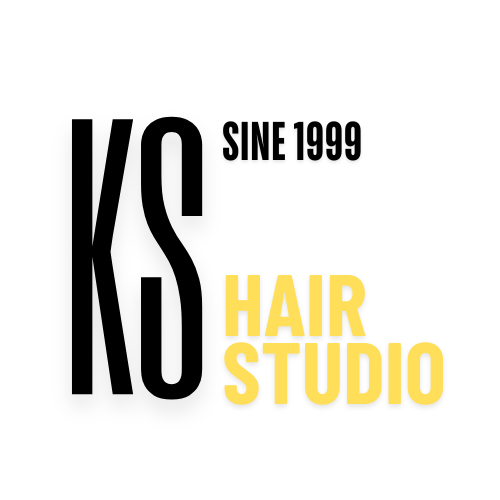In a world increasingly driven by conscious consumerism, the beauty industry has made significant shifts towards sustainability and clean practices, and hair care is no exception. With growing concerns over climate change, plastic pollution, and harmful chemical use, more consumers are prioritizing eco-friendly, ethical products. The future of hair care will be deeply rooted in these values, as brands innovate to meet the demands for transparency, sustainability, and clean ingredients.
This article delves into the trends shaping the future of hair care, exploring the latest developments in sustainable and clean beauty. We’ll cover everything from innovative packaging to clean ingredient formulations, offering actionable insights on how you can make your hair care routine greener while still achieving healthy, vibrant hair.
What Is Sustainable Hair Care?
Sustainable hair care refers to products and practices that minimize environmental impact, both in their creation and use. This can involve reducing waste, using renewable or recyclable materials, opting for eco-friendly packaging, and ensuring that ingredients are ethically sourced and biodegradable.
Why Sustainability Matters in Beauty
The beauty industry has a significant environmental footprint. Every year, billions of plastic bottles, many of them from hair care products, end up in landfills. Additionally, harmful chemicals from conventional shampoos, conditioners, and treatments can wash into waterways, damaging ecosystems. By switching to sustainable hair care, consumers can make a positive impact by reducing pollution and supporting ethical production practices.
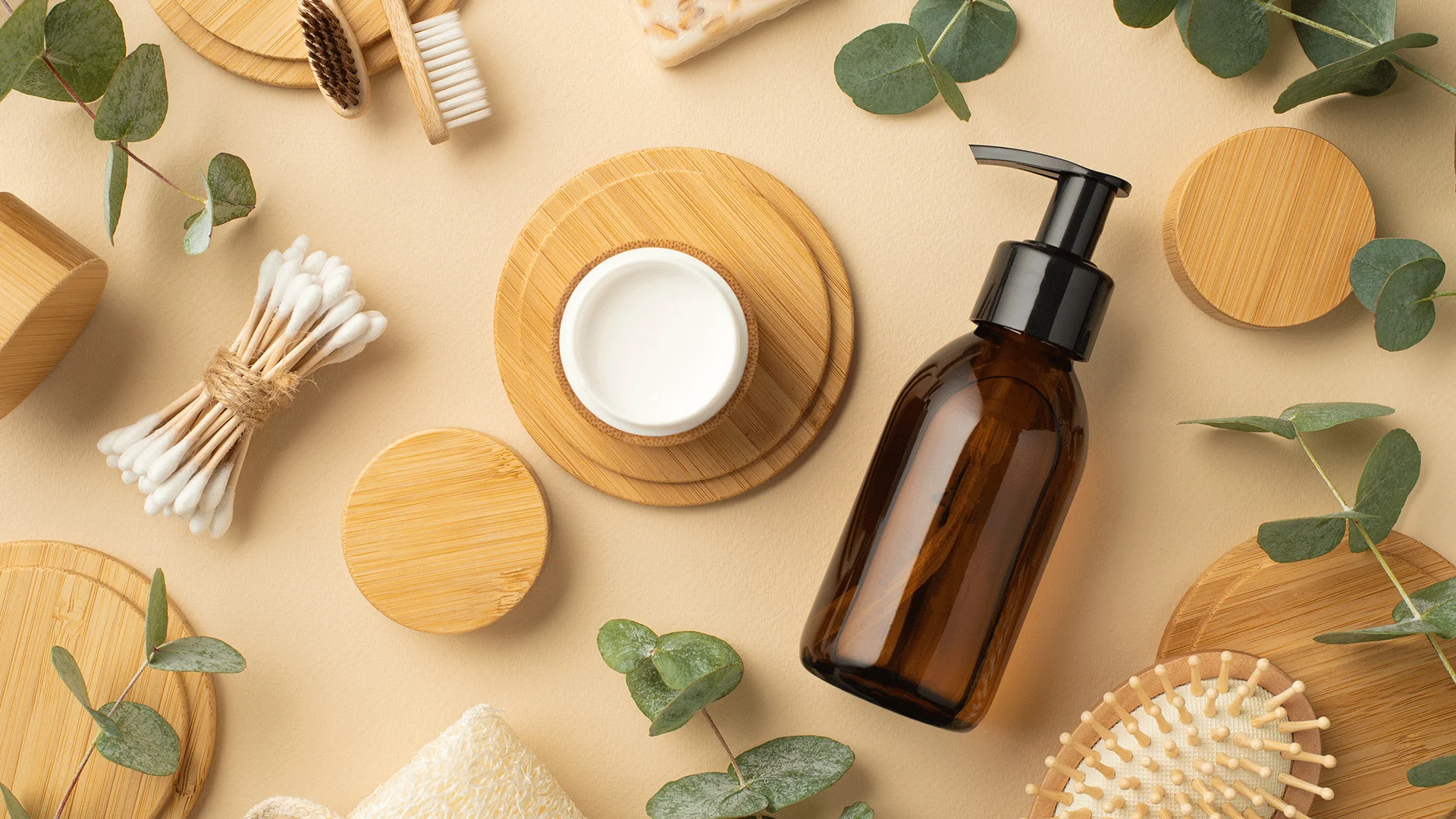
Clean Beauty and Its Rise in Hair Care
The clean beauty movement seeks to eliminate potentially harmful ingredients from beauty products. In hair care, this means avoiding substances like sulfates, parabens, phthalates, and synthetic fragrances that may damage hair or cause irritation. Clean beauty also places a focus on transparency, encouraging brands to list all ingredients clearly and avoid toxic chemicals.
Defining Clean Beauty for Hair
Clean beauty, in the context of hair care, focuses on products made with natural, non-toxic ingredients. Many clean beauty hair products rely on plant-based formulas, free from harsh chemicals that strip the hair of its natural oils or cause long-term damage. Clean hair care also considers the overall well-being of the user, focusing on maintaining healthy scalp conditions and hair growth without relying on synthetic additives.
Innovations in Eco-Friendly Hair Care
As consumers become more eco-conscious, brands are exploring innovative solutions that align with sustainability goals. This ranges from sustainable packaging to the development of waterless and zero-waste products.
Plastic-Free and Recyclable Packaging
One of the most significant environmental concerns in hair care is plastic waste. In response, many brands have shifted towards plastic-free or recyclable packaging. Some companies have even adopted biodegradable materials or refillable options to reduce their carbon footprint.
For example, solid shampoo bars have become increasingly popular. These bars eliminate the need for plastic bottles and are often wrapped in compostable or recyclable paper. Brands like Ethique and Lush have led the charge in promoting solid hair care products, which can be just as effective as liquid counterparts.
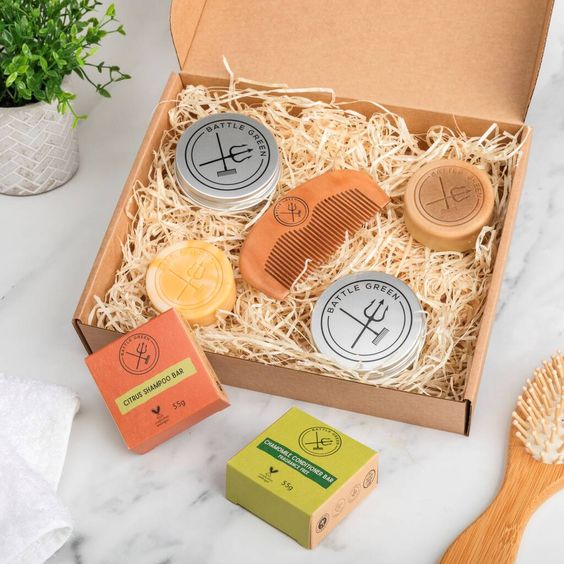
Waterless and Biodegradable Hair Products
Waterless hair care products, such as dry shampoos and leave-in conditioners, have been rising in popularity due to their eco-friendly properties. Not only do they reduce water waste, but they also require less packaging, making them a more sustainable choice. Additionally, many brands are focusing on biodegradable ingredients, ensuring that their products break down naturally in the environment without leaving harmful residues.
Zero-Waste Initiatives and Refill Programs
Another important trend is the rise of zero-waste hair care. Brands like Plaine Products and Alaffia offer refill programs that allow customers to return used containers to be cleaned, refilled, and reused, reducing waste. Zero-waste initiatives are part of a broader effort to create a circular economy in the beauty industry, one where resources are reused rather than discarded.
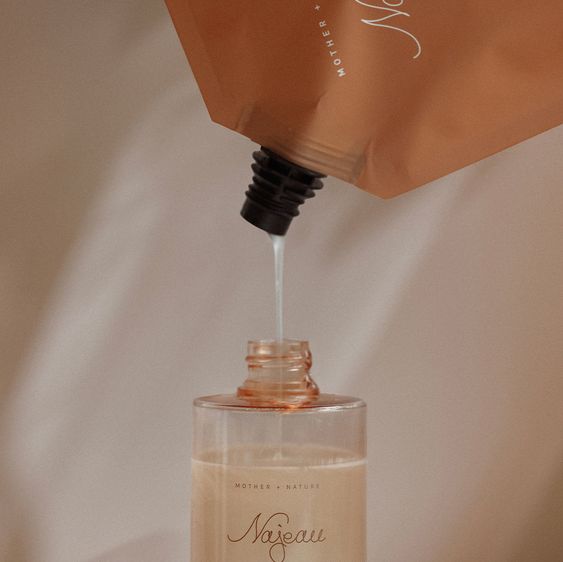
Ethical Sourcing and Manufacturing in Hair Care
Ethical sourcing and fair-trade practices are becoming increasingly important to consumers, particularly in hair care. Companies that prioritize the ethical sourcing of ingredients—such as responsibly harvested plant oils or cruelty-free manufacturing processes—are gaining favor with eco-conscious buyers.
Ingredients Sourcing and Cruelty-Free Standards
Consumers are becoming more aware of how their hair care products are made, particularly regarding ingredient sourcing. Ingredients such as argan oil, shea butter, and coconut oil are often harvested in ways that either benefit or exploit local communities. Ethical brands like Alaffia work directly with cooperatives and local producers to ensure fair wages and sustainable harvesting methods.
Moreover, cruelty-free hair care products, which are not tested on animals, have become a major part of the clean beauty movement. PETA’s “Beauty Without Bunnies” list has made it easier for consumers to identify and choose cruelty-free hair care brands.
Top Sustainable Hair Care Brands Leading the Future
The following are some key players in the sustainable hair care industry:
- Ethique: Known for its solid shampoo and conditioner bars, Ethique is committed to plastic-free, sustainable packaging and natural ingredients.
- Love Beauty and Planet: This brand focuses on using recycled plastic for packaging and responsibly sourced ingredients.
- Plaine Products: Offering refillable bottles and natural, vegan hair care products, Plaine Products leads the way in zero-waste beauty.
Creating a Sustainable Hair Care Routine
Building a sustainable hair care routine starts with making mindful choices about the products you use and how you use them. Here are some tips for making your hair care routine more eco-friendly:
Reducing Water Usage in Hair Care
One of the most effective ways to reduce your environmental footprint in hair care is to cut back on water usage. Waterless hair products, such as dry shampoos, not only save water but also extend the time between washes, reducing the overall demand on water resources. Solid shampoo bars are also water-efficient and do not require additional water during production.
DIY Natural Hair Care Recipes
For those looking to take sustainability even further, DIY hair care recipes made from common household ingredients are an excellent option. For example, apple cider vinegar can be used as a clarifying rinse, and coconut oil can serve as a deep conditioner.
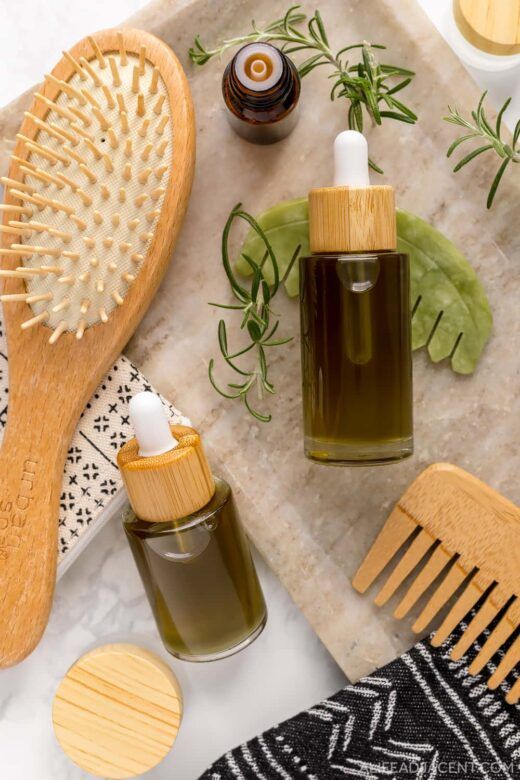
Choosing Products with Sustainable Packaging
When shopping for hair care products, prioritize brands that offer sustainable packaging. Look for products that come in glass, aluminum, or recycled plastic containers. Additionally, check if the brand offers refill programs or encourages recycling.
The Future of Clean and Sustainable Hair Care
The future of hair care lies in a continued focus on transparency, sustainability, and the use of clean, eco-friendly ingredients. As consumer demand for greener beauty grows, more brands will shift towards ethical sourcing, non-toxic formulations, and innovative packaging solutions.
Predictions for 2025 and Beyond
By 2025, the hair care industry is expected to see a rise in the popularity of biodegradable packaging, waterless products, and formulations free from synthetic chemicals. Consumer awareness of environmental impact will drive more innovation, leading to the creation of products that are not only good for your hair but also good for the planet.
Growing Consumer Demand for Transparency
Transparency will remain a cornerstone of the clean beauty movement. Brands that provide clear ingredient lists, avoid greenwashing, and commit to sustainable practices will gain consumer trust and loyalty.
Conclusion
Sustainable and clean beauty is not just a trend—it’s the future of hair care. As the industry evolves, consumers are looking for products that align with their values, from eco-friendly packaging to cruelty-free ingredients. By embracing these trends, you can make a positive impact on the planet while achieving beautiful, healthy hair.
Make the switch to sustainable hair care today and join the movement toward a greener, cleaner future.

My name is Nichelle, a beauty blogger with a passion for sharing knowledge and experience in beauty, especially hair care. I am currently collaborating with KS Hair Studio to bring you truly high-quality content such as sharing knowledge, product reviews, and my own hair care journey. Follow Nichellex and KS Hair Studio to discover hair care secrets together!
